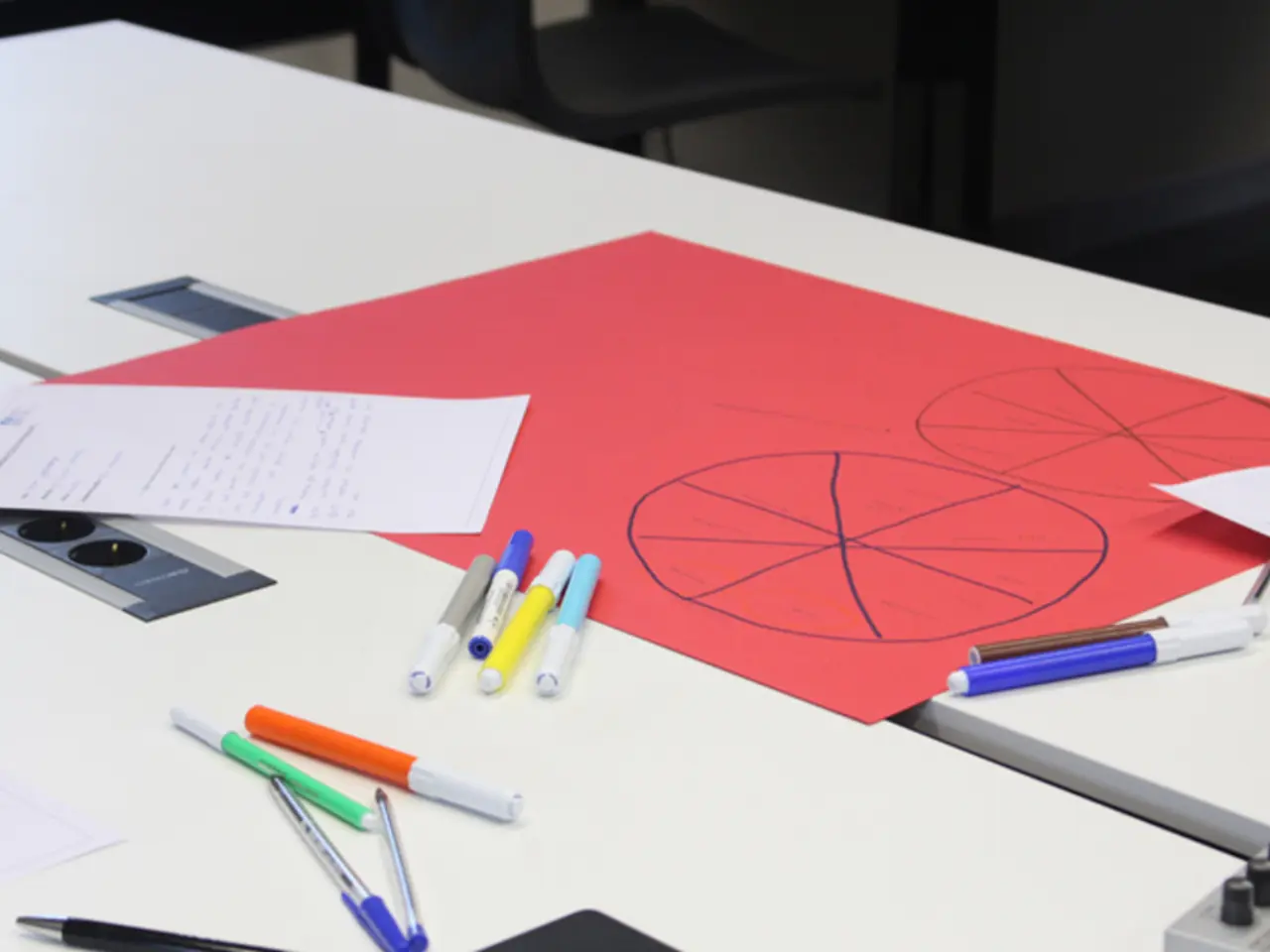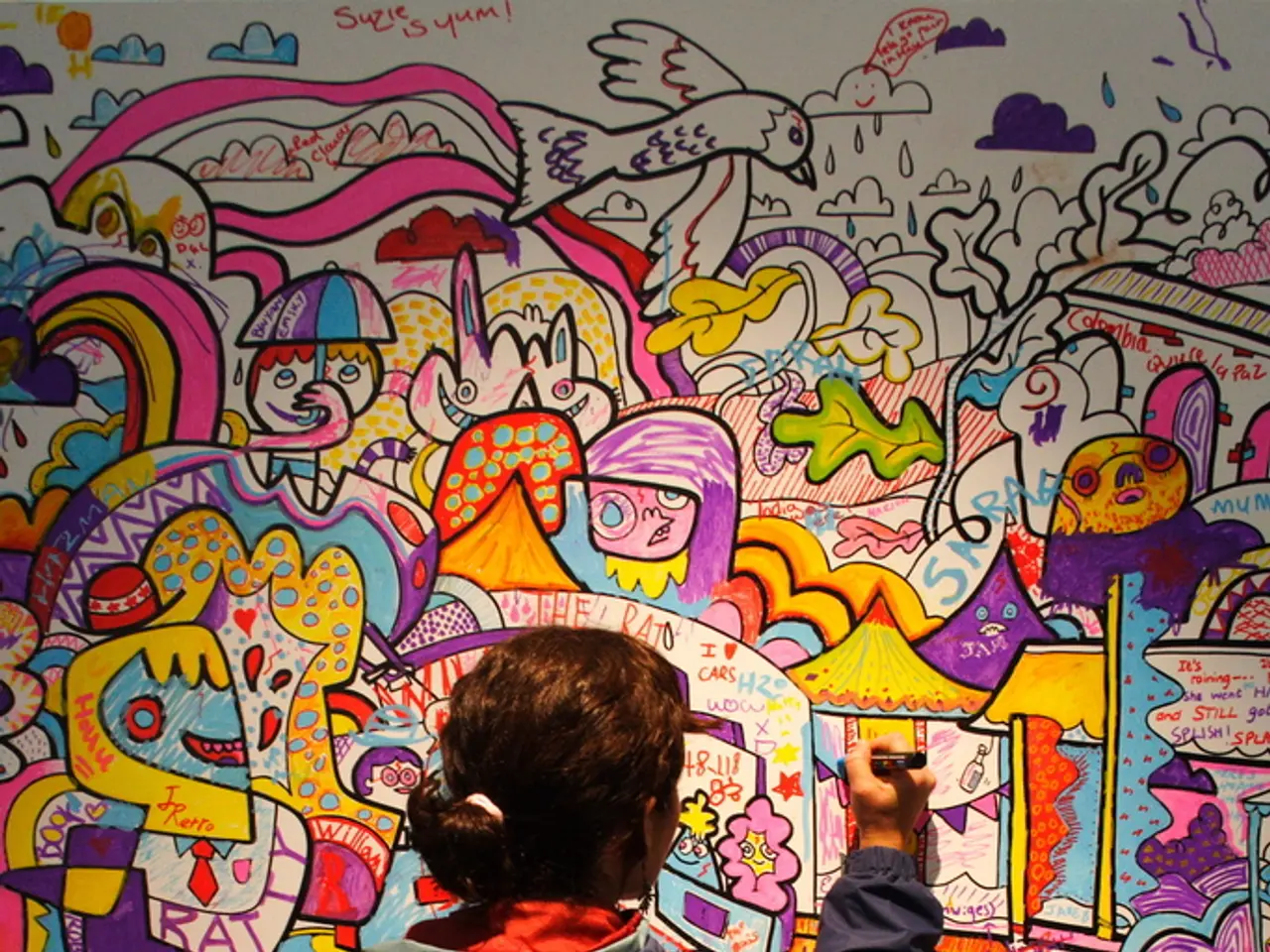Guiding Instruments for Non-standard Brain Functions
In the realm of decision-making, the journey towards clarity can be a challenging one, especially for neurodivergent individuals. However, a well-crafted toolkit can make this process more manageable and less overwhelming.
Writing a pros and cons list can provide surprising clarity, helping individuals weigh the advantages and disadvantages of different options. This simple exercise can bring a sense of order to the decision-making process.
Journaling, an underrated tool, plays a significant role in this toolkit. It slows things down, creating time to reflect, untangle, and connect the dots. Prompt-based journaling, which involves asking specific questions to clarify what you really want, can be particularly effective.
Journaling creates space to process thoughts without pressure, allowing individuals to externalise their thoughts and organise their ideas visually or thematically. Incorporating visual elements like charts or mind maps within journaling can help structure decisions and reflect on options without overwhelming executive function.
Effective visual aids for neurodivergent individuals include graphic organizers, visual goal maps, sticky notes in visible areas, dry-erase calendars with colour coding, and digital planning boards. These tools help create visible representations of goals and progress, reducing the need for internal mental tracking and supporting focus and motivation.
Digital applications tailored for neurodivergent users further aid in this process. Tools like ESSENCE-D generate visual neurodevelopmental profiles, assisting individuals and clinicians in understanding strengths and needs. More broadly, digital planning and collaboration platforms designed for neurodivergent users leverage principles of clarity, routine, and mutual understanding to improve workplace interactions and problem-solving.
Supporting techniques such as mindfulness practices, regulated breathing exercises, scheduled breaks, and sensory tools (e.g., fidget devices, weighted blankets) further help preserve willpower and cognitive energy necessary for effective decision-making.
Future-self entries and open-ended venting are additional techniques that can be incorporated into this toolkit. Future-self entries help individuals notice if their gut is nudging them towards or away from something, while open-ended venting allows them to let all the swirling thoughts out of their head.
The goal is to create a system that works for you, not against you. Finding what clicks for your brain may take a little trial and error, but with patience and persistence, you can build a decision-making toolkit that empowers you to make informed choices with confidence.
- The process of decision-making can be especially challenging for neurodivergent individuals, but a well-designed toolkit can make it more manageable.
- Writing a pros and cons list can provide clarity in the decision-making process by helping individuals weigh the advantages and disadvantages of different options.
- Journaling, an underrated tool, can play a significant role in this toolkit by slowing things down and allowing for reflection, untangling thoughts, and connecting the dots.
- Visual aids such as graphic organizers, visual goal maps, and digital planning boards can help structure decisions, reduce mental tracking, and support focus and motivation for neurodivergent individuals.
- Future-self entries and open-ended venting are techniques that can be incorporated into this toolkit, helping individuals make informed choices with confidence.
- Supporting techniques such as mindfulness practices, regulated breathing exercises, scheduled breaks, and sensory tools can further help preserve cognitive energy necessary for effective decision-making.
- In education-and-self-development, mental-health, and womens-health, this science-backed approach to decision-making can contribute to personal-growth and health-and-wellness.




